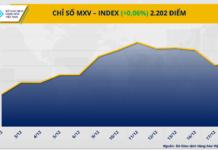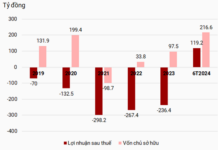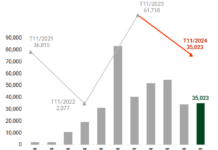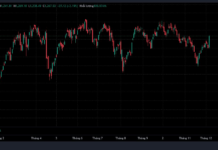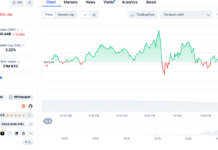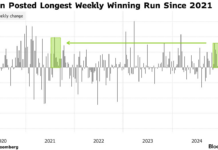Plastic waste is emerging as a serious environmental concern in the e-commerce era, where online shopping has become increasingly prevalent. Every online order often comes with plastic packaging materials such as plastic bags, wraps, and containers, resulting in a massive quantity of plastic waste.
E-COMMERCE PLASTIC WASTE ON THE RISE
According to Mr. Do Huu Hung, CEO of Accesstrade, the global e-commerce platform market in terms of revenue is valued at an estimated USD 6.8 billion in 2023 and is poised to reach USD 21.0 billion by 2032, expanding at a CAGR of 13.7% from 2023 to 2032.
Vietnam’s digital economy is on track to reach approximately USD 45 billion by 2025 (CAGR 20%), driven by strong economic growth expectations. E-commerce (B2B, B2C) is projected to reach around USD 24 billion by 2025 with a CAGR of 22%.
While e-commerce offers numerous conveniences and ease to consumers, its negative impact on the environment cannot be ignored.
According to a study conducted within the framework of the Vietnam Marine Plastic Debris Reduction Project jointly implemented by the World Wide Fund for Nature (WWF) and the Vietnam Administration of Seas and Islands, in 2023, Vietnam’s e-commerce sector utilized 170,000 tons of packaging materials and various types of plastics. With the average growth rate sustained at over 25% annually, it is evident that by 2030, the amount of plastic waste generated from e-commerce will be substantial. The detrimental impact on the environment lies not only in the scale of plastic waste but also in its location and characteristics.
Firstly, the majority of e-commerce activities are concentrated in large coastal cities such as Ho Chi Minh City, Hanoi, Da Nang, Hai Phong, Can Tho, and Nha Trang, increasing the risk of plastic waste being directly discharged into the ocean.
Secondly, the packaging materials and plastics used in e-commerce are predominantly plastic bags and disposable plastic items such as straws, spoons, forks, and foam boxes. These are single-use plastics that are challenging to biodegrade.
Thirdly, most parcels are directly packaged by hundreds of thousands of individual merchants, often using outdated technologies and disregarding environmental protection standards.
CHALLENGES FACING VIETNAMESE E-COMMERCE
Over the past decade, e-commerce in Vietnam has witnessed remarkable growth, expanding at a rate of 16-30% annually. According to the Vietnam E-commerce White Paper 2023, Vietnam’s retail e-commerce revenue increased by 25% compared to 2022, reaching USD 20.5 billion. However, according to Ms. Le Hoang Oanh, Director of the Department of E-commerce and Digital Economy, despite its rapid and consistent growth, Vietnam’s e-commerce sector still faces certain limitations and challenges.

Firstly, e-commerce revenue accounts for only 8% of the total retail revenue of goods and consumer services nationwide, lower than the global average of 19.4%. Secondly, e-commerce development is concentrated in a few major cities, while other localities need to bridge this gap. Thirdly, consumer rights violations in e-commerce are quite common, affecting consumer trust and the growth of e-commerce.
And fourthly, according to Ms. Oanh, e-commerce has yet to develop sustainably due to limitations in human resources and adverse environmental impacts, particularly in the online retail sector with its packaging and delivery processes.
According to the leader of the Department of E-commerce and Digital Economy, e-commerce is evolving in line with global trends, with a focus on green commerce and sustainable e-commerce. “We are witnessing several new trends, and if Vietnam fails to keep up, our e-commerce sector may stagnate and fail to reach its full potential,” said Ms. Oanh.
Returning to the issue of single-use plastics and hard-to-biodegrade plastic packaging, Vietnam’s Law on Environmental Protection has imposed strict regulations.
From January 1, 2026, the production and import of hard-to-biodegrade plastic bags smaller than 50cm x 50cm and with a single-layer thickness of less than 50 µm will be prohibited, except in cases of production for export or production and import for packaging products or goods sold on the market.
Organizations and individuals producing or importing single-use plastic products and hard-to-biodegrade plastic packaging must fulfill their recycling and treatment responsibilities as prescribed by regulations.
However, according to a survey conducted by the Vietnam E-commerce Association (VECOM), very few e-commerce businesses and merchants are aware of and have appropriate plans to utilize alternative packaging materials.
The Vietnam E-commerce Association believes that protecting the environment and reducing plastic waste in the online sphere require the cooperation of multiple stakeholders.








